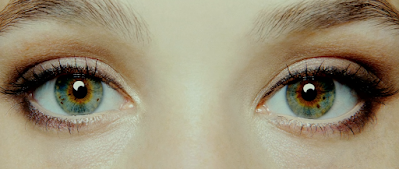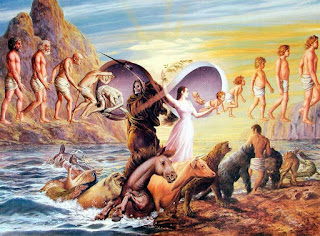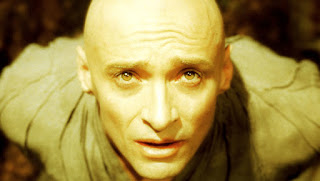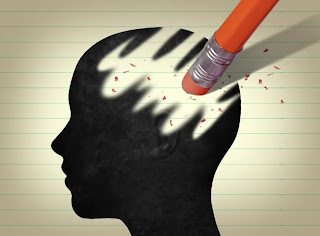Reincarnation Mystery
Reincarnation simply means leaving one life and moving on to
another. The soul is reborn as a human, animal, or plant in the next, according
to the moral quality of the previous life. However, even if the person passes
into another body, the core personality remains the same.
Reincarnation is often featured in religions such as Hinduism and Buddhism. But religions such as Islam, Judaism, and Christianity generally reject reincarnation. Reincarnation also takes place in Greek philosophy.
Reincarnation in the Ancient Western World
Mysterious religions, sometimes transforming from secular
social clubs or fraternities, may adopt a wide variety of reincarnation rites
and beliefs. Some of these are Orphism, Pythagoras, and Plato.
Orphism was a popular mystery religion that began in the
sixth or seventh century BC. The followers studied the supposed writings of
Orpheus, a legendary musical figure. They believed in a spirit that resisted
death and could incarnate in human or animal form. Orphics believed that the soul
was divine and imprisoned by the body. A soul living a righteous life can go to
the afterlife, Elysium; on the other hand, the evil spirit suffers in hell. But
life after death is not eternal, and after a while, the soul is reborn in a new
body. A soul can only end its cycle of reincarnation after it has passed
through three good Orphic lives.
Another mystery community-based in Southern Italy is the
Pythagorean brotherhood. Philosophers and mathematicians from the fraternity
believed that the soul could be revived in a human or animal body. This belief
led to the birth of vegetarianism. The Brotherhood adopted the doctrine that
the soul comes from the stars but falls to earth and merges with the human
body.
The philosopher Plato also believed that the soul reincarnated many times over. Plato thought that seven planetary spheres and an eighth sphere of fixed stars surround the Earth. According to this idea, souls came from planets, descended to earth, merged with bodies, and then tried to free themselves and ascend to the stars.
Reincarnation Research
Psychiatrist Ian Stevenson of the University of Virginia, a
pioneer in scientific research on reincarnation, has studied many reports of
young children who claim to remember a past life. He has worked on more than
2,500 cases spanning a 40-year period and has published 12 books, including
Twenty Cases Suggestive of Reincarnation and Where Reincarnation and Biology
Intersect.
Stevenson methodically documented each child's statement and
then identified the deceased person with whom the child identified and
confirmed that the facts of the deceased's life matched the child's memory. He
also compared birthmarks and birth defects to wounds and scars on the deceased,
which are confirmed by medical records, such as autopsy photos in Reincarnation
and Biology.
Stevenson, who often describes reincarnation as "the
survival of the personality after death," saw the existence of past lives
as a potential explanation for differences in the human condition. He believed
that genetics and environment, as well as past experiences, could help
illuminate gender dysphoria, phobias, and other unexplained personality traits.
Stevenson claimed that he only wanted to show that reincarnation could be plausible, not to prove it. Stevenson's work was largely rejected by the scientific community. Skeptics argue that claims for evidence for reincarnation stem from selective thinking and false memories, often stemming from one's own belief system and core fears, and therefore cannot count as empirical evidence.
There is currently neither strong objective evidence nor
specific research methods that can reveal the mystery of reincarnation.
Well, as Stevenson mentioned, how do some unexplained
phobias and personality traits occur? As you know, some unexplained phobias can
be observed not only in children who claim to be reincarnated but also in many
other people. Even if we have not experienced any traumatic events before, we
can experience phobias such as fear of the dark, gasping in closed spaces, or feeling
stressed and trembling in high places. If we can't explain it scientifically
with reincarnation, how else can we explain this situation?
With genetics…
Our genes may be inheriting some phobias…
When we are afraid of heights for no reason, let us not
immediately think of “I must have fallen from a high place in my previous
life”. Because there is a scientific explanation for this. Our genes from our
ancestors.
Research shows that some of our memories, fears and
behaviors are passed down genetically from our ancestors.
We can inherit our fears through genetics, as well as some
diseases that are congenital and inherited through genetics. Recent research by
scientists shows that we inherit a lot of genetic memories from our parents,
grandparents, and other ancestors through an instinctive effort in their DNA to
better prepare us for the difficult experiences they faced, such as fear,
illness, or trauma.
Researchers at Emory University School of Medicine have
discovered that small rodents can transmit knowledge and phobias across
generations. The scientists took the rats and, with a series of small electric
shocks, instilled a revulsion at the smell of cherry blossoms. They observed
that mice exposed to this and exhibiting this fear eventually produced offspring
who were also afraid of the smell of cherry blossom, even though they had never
been exposed to electric shocks and had no reason to be afraid. The researchers
also discovered that the brains of these rats were structurally different from
those of other rats without conditioning parents or ancestors. Even if the rats
were created by artificial insemination, it was observed that they had a fear
of cherry blossom, although they did not have any interaction with the parents
who first developed the fear.
Similar experiments were conducted at Tel Aviv University in
Israel, and scientists discovered that conditions such as starvation and virus
in worms affect the DNA of their offspring. The researchers concluded that
these specific genes were passed on in an instinctive attempt to prepare the
generations for challenges.
Scientists have yet to test this phenomenon in humans. But
the experiment shows some strong evidence that memories can be transmitted
biologically, and the consequences of these genetic transmissions could be seen
as key to understanding some human behaviors. While we are very different from
the species tested, the findings of this research are quite remarkable in terms
of human genetics.
In light of this research, we know that illness, fear, and memories can somehow be passed down from generation to generation. Why shouldn't we start talking about our previous life when our brain is an organ that can produce false memories?
Memories can be manipulated, shaped, and formed by combining several different events.
Every event has as many different points of view as the
number of witnesses. Everyone interprets the same situation from their point of
view, but none of them exactly match reality. If there are gaps in our memory
of the event, well congrats. Cause our brain will fill those gaps by
interpreting the information it has. However, we cannot be sure whether it is
using the truth or purely fiction in making these comments. This is what we
call false memories. Memories that seem real but partially or completely
fabricated…
Our genes can inherit some feelings, fears, ways of
thinking, or diseases related to situations we have not experienced. Our brain
is able to present the events we have not experienced as if they are memories
of us by blending the information we hear from here and there with other
information accumulated in our subconscious. As a result, we may experience
situations that are not possible in our lives, but that we remember and believe
that we have traces of them. If at that very moment, someone comes out and
says, "What if these are memories from your previous life," all the
pieces fall into place and you may start to think that you remember your
previous life. Of course, that's just my opinion. There could be many other
ways, but perhaps memories of someone who actually lived in the past have
leaked into your brain through one of the cracks in spacetime. I do not know.
In other words, the only scientifically proven and plausible
example of reincarnation is factors such as diseases and fears passed down from
our ancestors. I can't say anything if you want to see yourself as a
reincarnation of your previous generations because it was transferred from
another body to yours. But this is just a matter of inheritance. How you
interpret the rest is up to you.
If you're going to have another life, may the good karma be
with you...






Comments
Post a Comment